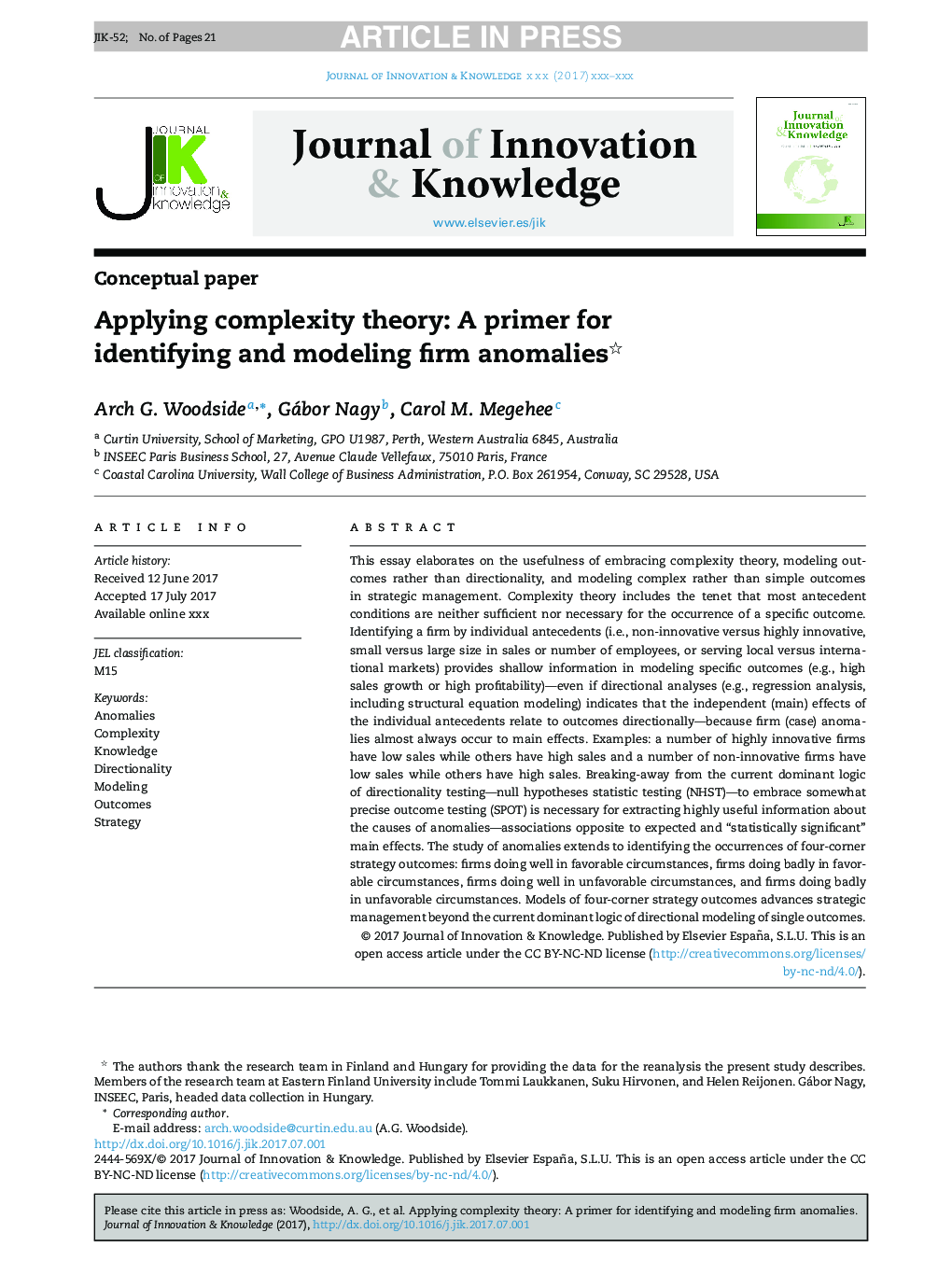| کد مقاله | کد نشریه | سال انتشار | مقاله انگلیسی | نسخه تمام متن |
|---|---|---|---|---|
| 7429309 | 1483359 | 2018 | 21 صفحه PDF | دانلود رایگان |
عنوان انگلیسی مقاله ISI
Applying complexity theory: A primer for identifying and modeling firm anomalies
ترجمه فارسی عنوان
اعمال نظریه پیچیدگی: آغازگر برای شناسایی و مدل سازی ناهنجاری های شرکت
دانلود مقاله + سفارش ترجمه
دانلود مقاله ISI انگلیسی
رایگان برای ایرانیان
کلمات کلیدی
موضوعات مرتبط
علوم انسانی و اجتماعی
مدیریت، کسب و کار و حسابداری
مدیریت فناوری و نوآوری
چکیده انگلیسی
This essay elaborates on the usefulness of embracing complexity theory, modeling outcomes rather than directionality, and modeling complex rather than simple outcomes in strategic management. Complexity theory includes the tenet that most antecedent conditions are neither sufficient nor necessary for the occurrence of a specific outcome. Identifying a firm by individual antecedents (i.e., non-innovative versus highly innovative, small versus large size in sales or number of employees, or serving local versus international markets) provides shallow information in modeling specific outcomes (e.g., high sales growth or high profitability)-even if directional analyses (e.g., regression analysis, including structural equation modeling) indicates that the independent (main) effects of the individual antecedents relate to outcomes directionally-because firm (case) anomalies almost always occur to main effects. Examples: a number of highly innovative firms have low sales while others have high sales and a number of non-innovative firms have low sales while others have high sales. Breaking-away from the current dominant logic of directionality testing-null hypotheses statistic testing (NHST)-to embrace somewhat precise outcome testing (SPOT) is necessary for extracting highly useful information about the causes of anomalies-associations opposite to expected and “statistically significant” main effects. The study of anomalies extends to identifying the occurrences of four-corner strategy outcomes: firms doing well in favorable circumstances, firms doing badly in favorable circumstances, firms doing well in unfavorable circumstances, and firms doing badly in unfavorable circumstances. Models of four-corner strategy outcomes advances strategic management beyond the current dominant logic of directional modeling of single outcomes.
ناشر
Database: Elsevier - ScienceDirect (ساینس دایرکت)
Journal: Journal of Innovation & Knowledge - Volume 3, Issue 1, JanuaryâApril 2018, Pages 9-25
Journal: Journal of Innovation & Knowledge - Volume 3, Issue 1, JanuaryâApril 2018, Pages 9-25
نویسندگان
Arch G. Woodside, Gábor Nagy, Carol M. Megehee,
